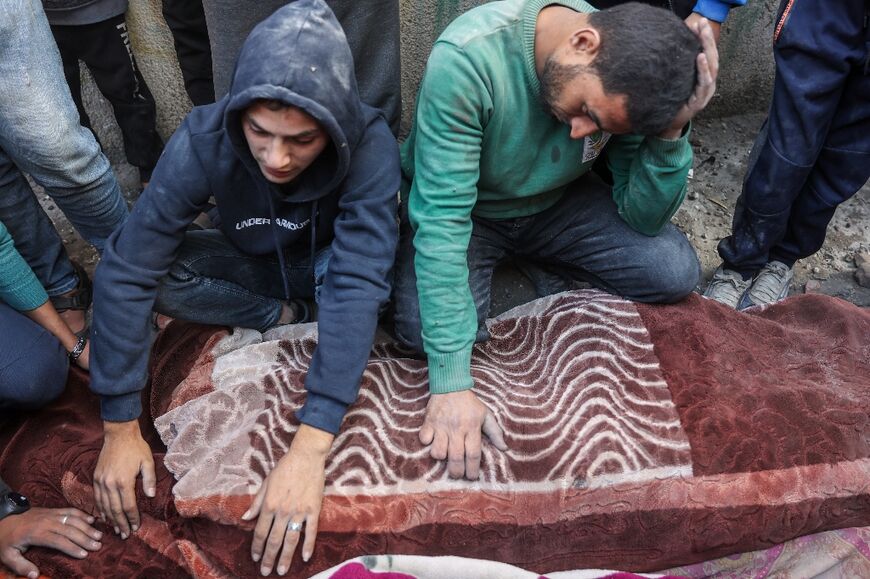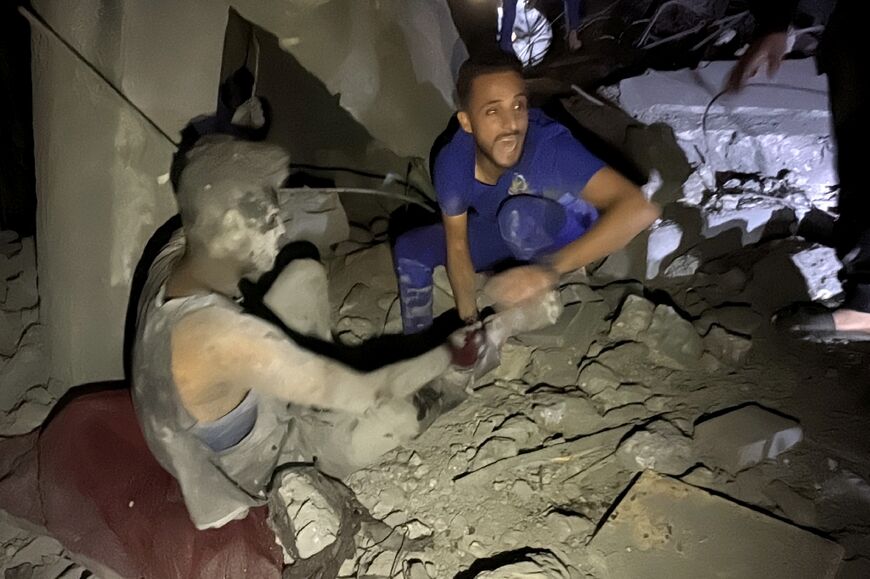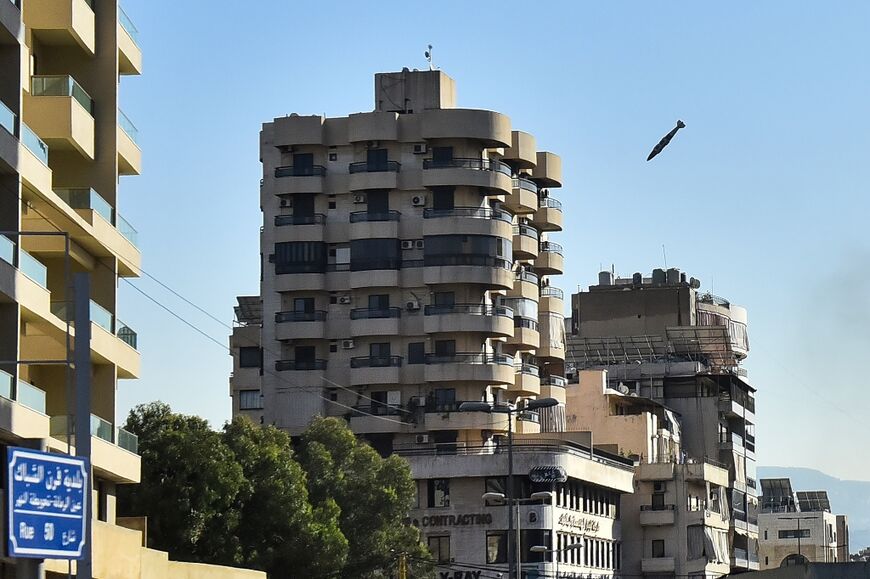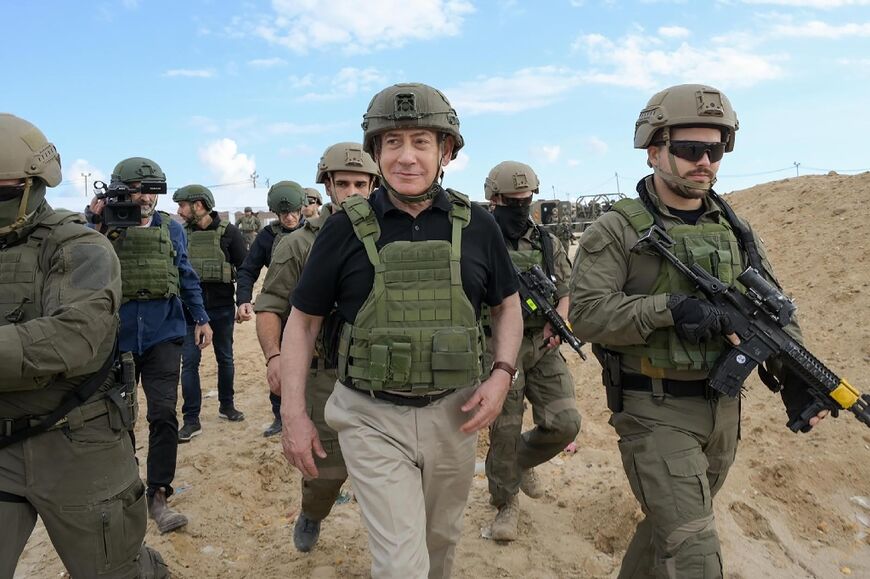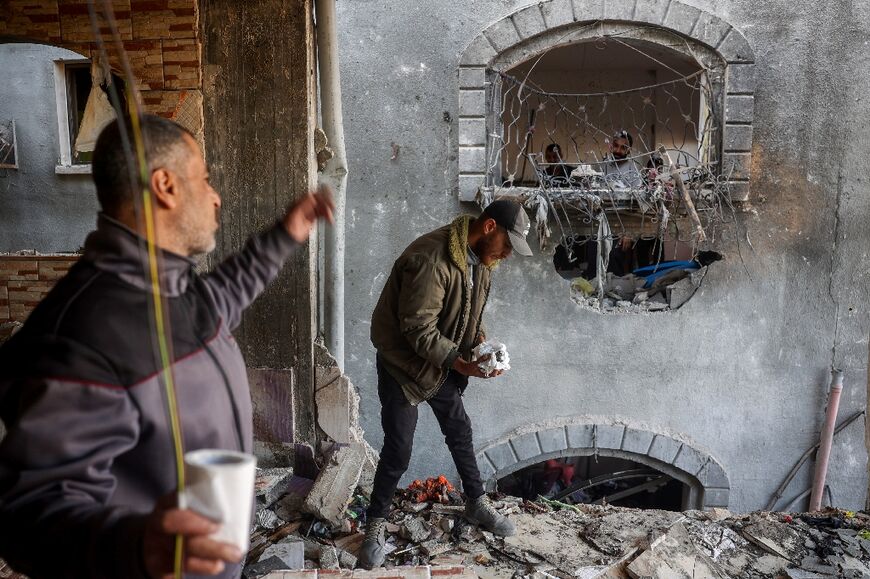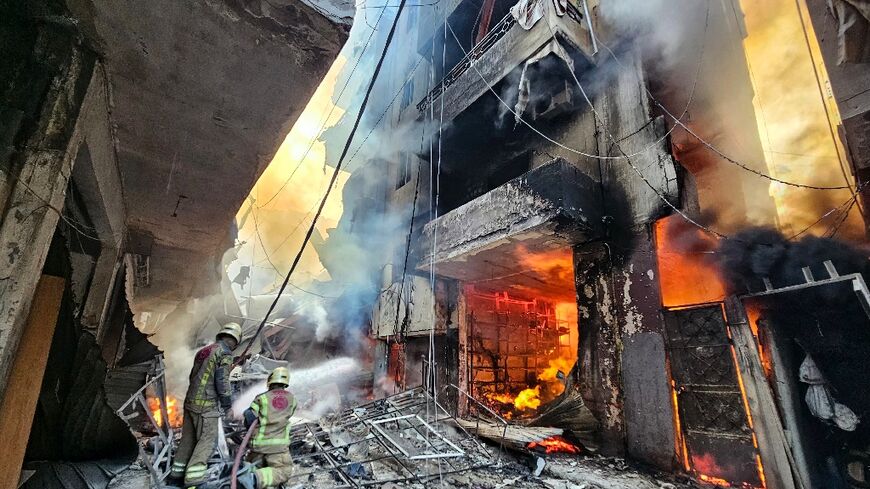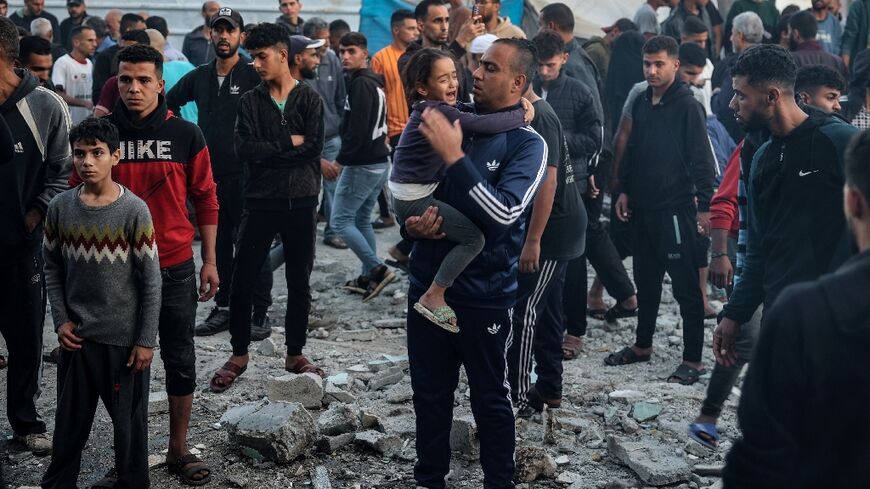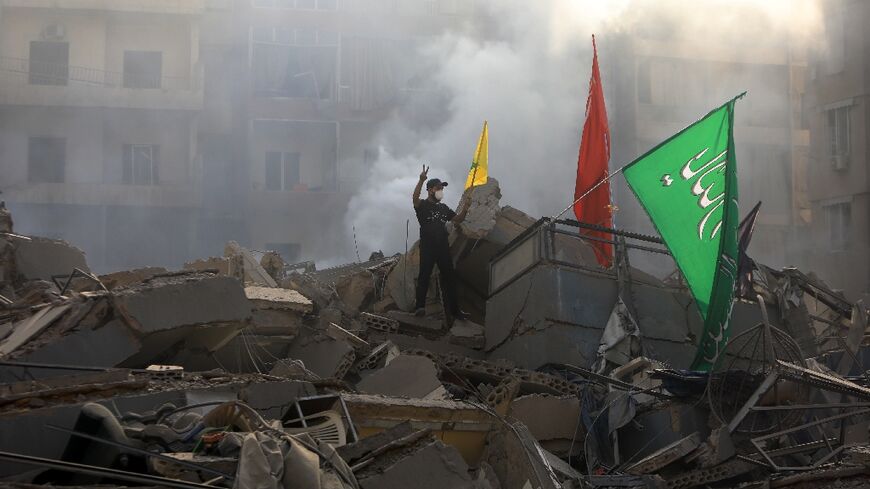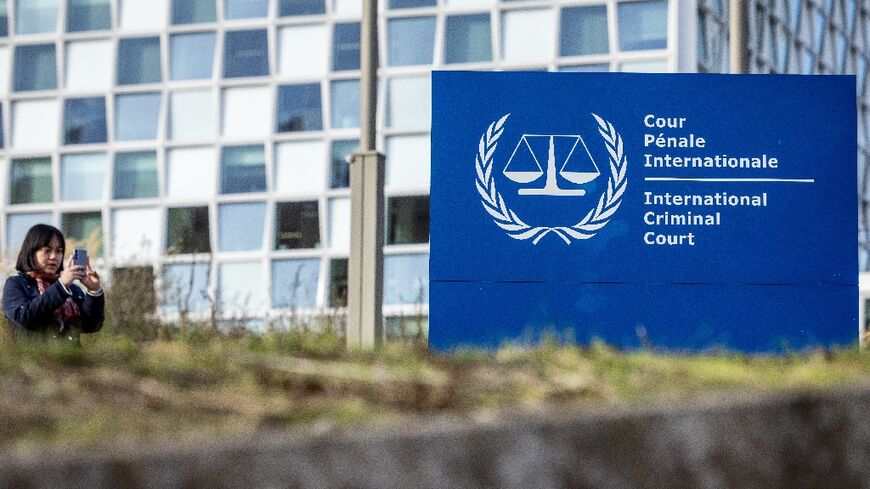Fears for Gaza hospitals as fuel and aid run low
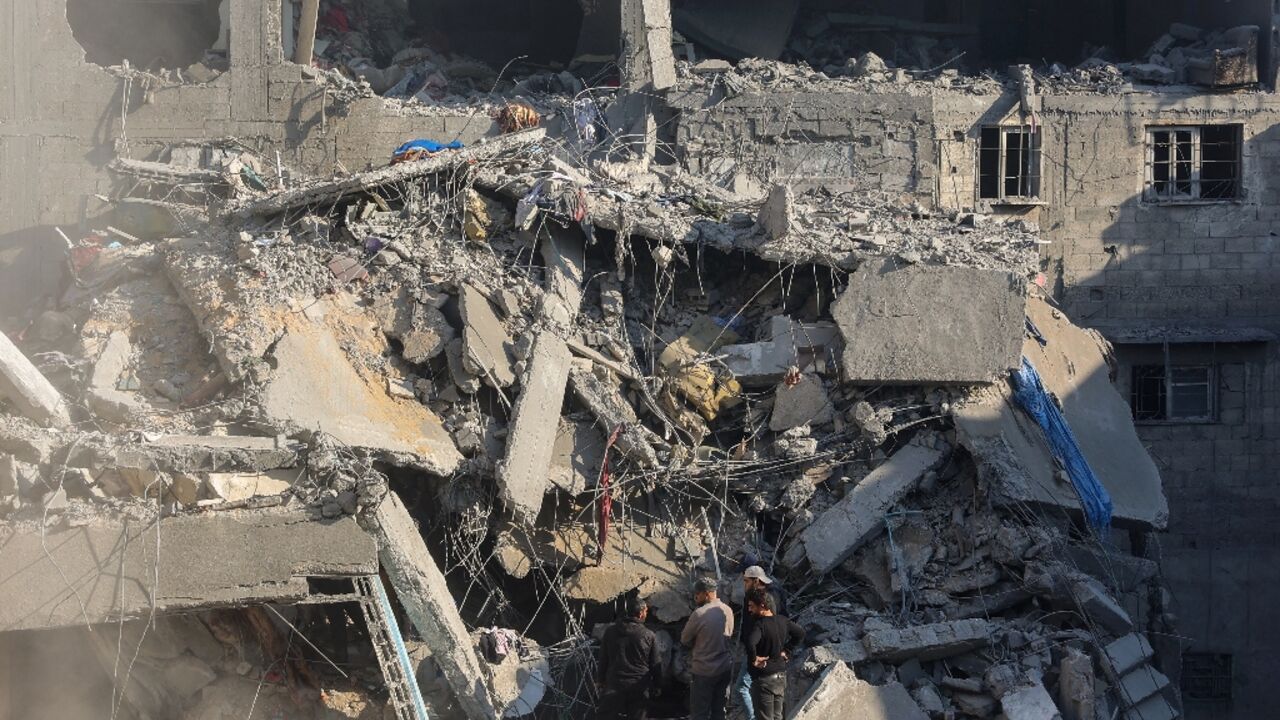
The health ministry in Hamas-run Gaza said Friday that hospitals have only two days' fuel left before they must restrict services, after the UN warned aid delivery to the war-devastated territory is being crippled.
The warning came a day after the International Criminal Court issued arrest warrants for Israeli Prime Minister Benjamin Netanyahu and former defence minister Yoav Gallant more than a year into the Gaza war.
The United Nations and others have repeatedly decried humanitarian conditions, particularly in northern Gaza, where Israel said Friday it had killed two commanders involved in Hamas's October 7, 2023 attack that triggered the war.
Gaza medics said an overnight Israeli raid on the cities of Beit Lahia and nearby Jabalia resulted in dozens killed or missing.
Marwan al-Hams, director of Gaza's field hospitals, told reporters all hospitals in the Palestinian territory "will stop working or reduce their services within 48 hours due to the occupation's (Israel's) obstruction of fuel entry".
World Health Organization chief Tedros Adhanom Ghebreyesus said he was "deeply concerned about the safety and well-being of 80 patients, including 8 in the intensive care unit" at Kamal Adwan hospital, one of just two partly operating in northern Gaza.
Kamal Adwan director Hossam Abu Safia told AFP it was "deliberately hit by Israeli shelling for the second day" Friday and that "one doctor and some patients were injured".
Late Thursday, the UN's humanitarian coordinator for the Palestinian territories, Muhannad Hadi, said: "The delivery of critical aid across Gaza, including food, water, fuel and medical supplies, is grinding to a halt."
He said that for more than six weeks, Israeli authorities "have been banning commercial imports" while "a surge in armed looting" has hit aid convoys.
- 'Absurd and false' -
Vowing to stop Hamas from regrouping, Israel on October 6 began an air and ground operation in Jabalia and then expanded it to Beit Lahia.
Gaza's health ministry says the operation has killed thousands.
The UN says more than 100,000 have been displaced from the area, and an official told the Security Council last week that people "are effectively starving".
Issuing the warrants for Netanyahu and Gallant, the Hague-based ICC said there were "reasonable grounds" to believe they bore "criminal responsibility" for the war crime of starvation as a method of warfare, and crimes against humanity including over "the lack of food, water, electricity and fuel, and specific medical supplies".
A furious Netanyahu said: "Israel rejects with disgust the absurd and false actions and accusations made against it."
He said the judges were "driven by anti-Semitic hatred of Israel".
On Friday, he thanked his Hungarian counterpart Viktor Orban for inviting him to visit in defiance of the ICC warrant, which Orban branded "political".
Hungary currently holds the rotating EU presidency.
US President Joe Biden, whose country is Israel's top military supplier, called the warrants against Israeli leaders "outrageous", but other world leaders supported the court.
Irish Prime Minister Simon Harris said Netanyahu would be arrested if he set foot in the country.
Biden and French President Emmanuel Macron on Friday discussed efforts to reach a ceasefire in Lebanon, the White House said.
- Warrant for Hamas chief -
The ICC also issued a warrant for Hamas military chief Mohammed Deif, saying it had grounds to suspect him of war crimes and crimes against humanity over the attacks on Israel that sparked the war, including "sexual and gender-based violence" against hostages.
Israel said it killed Deif in July, but Hamas has not confirmed his death.
On Thursday, a UN representative said an Israeli raid on Palmyra in Syria this week was "likely the deadliest" by Israel on the country so far. On Friday, a war monitor said the strikes killed 92 pro-Iran fighters.
Israel again bombed Gaza on Friday. In Gaza City, just south of Jabalia, one man who said he took his cousins to hospital after a strike urged "the world... to put an end" to the war.
Belal, who gave only his first name, said 10 members of his family had been killed.
At least 44,056 people have been killed in Gaza during more than 13 months of war, most of them civilians, according to figures from Gaza's health ministry which the United Nations considers reliable.
Hamas triggered the war with the deadliest attack in Israeli history, which resulted in the deaths of 1,206 people, mostly civilians, according to an AFP tally of Israeli official figures.
The war expanded to Lebanon in late September when Israel escalated air strikes against Iran-backed Hezbollah and later sent ground troops into southern Lebanon, after nearly a year of tit-for-tat cross-border exchanges which Hezbollah said were in support of Hamas.
Lebanon says more than 3,580 people have been killed in the country, most of them since late September.
Five Israeli missiles struck a residential building in the heart of Beirut on Saturday, Lebanon's state-run National News Agency (NNA) said, adding the eight-storey building was "completely destroyed".
AFP journalists heard at least three large explosions in the capital, a day after Israel carried out multiple strikes in the city's southern suburbs.
A strike on Baalbek in the east killed the director of Dar al-Amal university hospital and six colleagues, the health ministry said late Friday.
NNA also reported strikes in the south of the country, where UN peacekeepers have reported being fired on numerous times, blaming both Israel and "non-state" actors.
On Friday, Rome said Hezbollah was probably behind rocket fire that lightly wounded four Italian peacekeepers.


